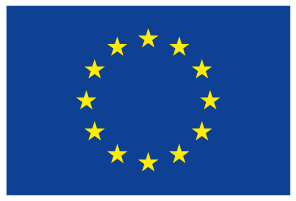Belgium
Ongoing
- Type : Energy planning
- Size : Regional
- Area : Industrial, Residential, Utility
Environmental benefit
District Heating Network Kortrijk
Share
Belgium
Ongoing
- Type : Energy planning
- Size : Regional
- Area : Industrial, Residential, Utility
Environmental benefit
Discover this use case online
The first phase in the project was the installation of a district heating scheme at Kortrijk Weide, a brownfield site, where sustainability in all its aspects was the lead precondition in the development. An ecological green area of 2,5 ha was created, along with the construction of new public buildings: a swimming pool, party hall, youth center, urban sport hall and an incubator. Low carbon heat of the swimming pool is used to heat these new public buildings.
The pilot was used as a test case for the further extension to the higher education campus across the railroad. Further investments and infrastructural works have been carried out to be able to connect more hubs to the district heating network in the future.
Within the scope of the project, the city also researched the feasibility to install a district heating backbone from the waste incinerator at the outskirts of the city, along the river Leie to the city center. As many new housing were and are constructed along the river, that would create the opportunity to connect over 1000 households. Unfortunately the business case had a negative outcome, stressing the local importance of first creating hubs to be able to connect later on and of future subsidy opportunities or other business models.
Together with the intercommunal organisation and project partner Leiedal, a transformation roadmap was developed and translated into a spatial energy plan for the city and the region.
Further research was also done on the creation of an energy company to manage the district heating scheme and on sustainable heat sources.
 R-ACES has received funding from the European Union’s Horizon 2020 research and innovation programme under grant agreement N° 892429
R-ACES has received funding from the European Union’s Horizon 2020 research and innovation programme under grant agreement N° 892429
The first phase in the project was the installation of a district heating scheme at Kortrijk Weide, a brownfield site, where sustainability in all its aspects was the lead precondition in the development. An ecological green area of 2,5 ha was created, along with the construction of new public buildings: a swimming pool, party hall, youth center, urban sport hall and an incubator. Low carbon heat of the swimming pool is used to heat these new public buildings.
The pilot was used as a test case for the further extension to the higher education campus across the railroad. Further investments and infrastructural works have been carried out to be able to connect more hubs to the district heating network in the future.
Within the scope of the project, the city also researched the feasibility to install a district heating backbone from the waste incinerator at the outskirts of the city, along the river Leie to the city center. As many new housing were and are constructed along the river, that would create the opportunity to connect over 1000 households. Unfortunately the business case had a negative outcome, stressing the local importance of first creating hubs to be able to connect later on and of future subsidy opportunities or other business models.
Together with the intercommunal organisation and project partner Leiedal, a transformation roadmap was developed and translated into a spatial energy plan for the city and the region.
Further research was also done on the creation of an energy company to manage the district heating scheme and on sustainable heat sources.
